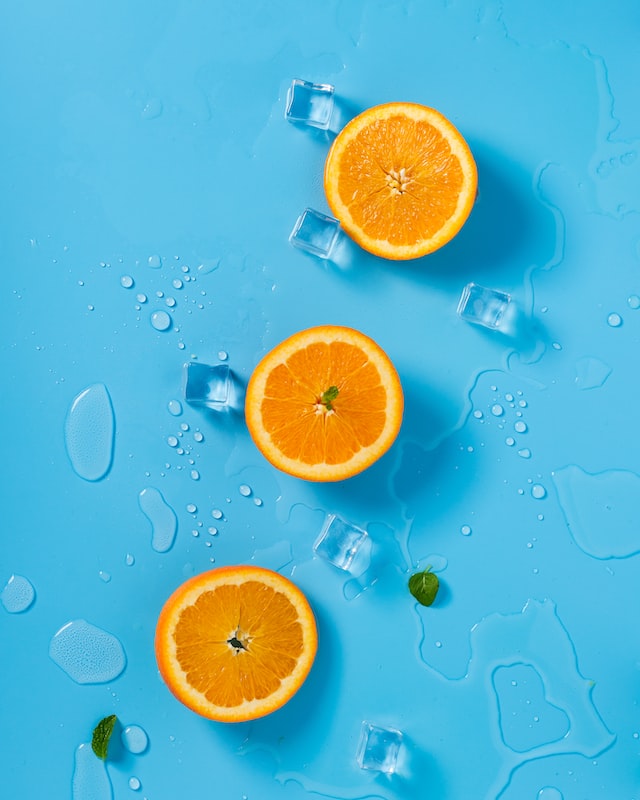Even diabetic patients can enjoy drinks, but make sure not to drink too much sugar. Be aware of what you drink or eat. Keeping your blood sugar levels in check requires awareness of how many carbohydrates you consume. Avoid drinks that can spike your blood sugar levels. Always remember to drink low-sugar options, like vegetable juice, in moderation.
The American Diabetes Association suggests zero-calorie or low-calorie drinks. Choose the right drinks to manage your symptoms, and maintain a healthy weight.
Make the right choice by considering the following options :
Water :- You don’t have to worry while drinking water as it neither lowers nor raises blood sugar levels. High blood glucose may result in dehydration. If you drink enough water, your body will be able to clear extra glucose through urine. Drinking water maintains a healthy body temperature, lubricates your joints, and improves cognitive functions. You can add slices of lemon, orange, herbs, or raspberries to your drinks.
According to the Institute of Medicine, men should drink 13 cups or 3.08 liters of water in a day and women 9 cups or 2.13 liters.
Seltzer water :- Seltzer water is a sugar-free substitute for other carbonated beverages such as soda. It has no calories, carbohydrates, or sugar. Stay hydrated with a carbonated drink, and maintain healthy blood sugar levels. You can choose from different flavors and varieties.
Coffee :- You can have your cup of coffee but keep it unsweetened. Limit its intake to four cups a day. You may have an adverse effect on your blood sugar levels if you drink coffee with milk, cream, or sugar. You can choose no or low-calorie sweeteners.

Tea :- A 2021 cohort study suggests daily consumption of green tea lowers the risk of type 2 diabetes. However, more study is required. Whether you are drinking green, white, or black tea, avoid added sugar. You can have iced tea with a few slices of lemon.
- Sweet tea :- Make your own sweet tea. Put your preferred crushed fruit in a cup of tea, then add a no-calorie sugar substitute. That’s a big glass of refreshing drink.
- Herbal tea :- People with diabetes may consider herbal tea varieties such as chamomile, hibiscus, ginger, and peppermint tea. It is free of carbs, calories, and sugar and is rich in disease-fighting antioxidant compounds.
Chocolate milk :- Chocolate milk is a sweet memory of childhood. Low-fat chocolate milk is a suitable post-workout beverage. But packed ones contain sugar. Make your own chocolate milk- add 1% milk, 3 teaspoons of cocoa powder, and 2 tablespoons of the zero-calorie sweetener. You save 70 calories, 16 grams of carbs, and 2 grams of fat compared to 1 cup of store-bought, reduced-fat chocolate milk.
Vegetable juice :- Most fruit juice contains sugar, you can try tomato juice or a veggie juice substitute. For a tasty source of vitamins and minerals, create your own blend of green leafy vegetables, celery, or cucumbers with a few berries but count berries to check carbohydrate intake. Tomato juice provides overall health benefits if taken with no added salt or sugar.
Orange juice :- Eat oranges instead of drinking 26 grams of carbs in one cup. The fiber will assist in keeping you full. You can drink an orange-flavored light fruit drink. To get 100% of your recommended daily intake of vitamin C, look for a brand with 3 grams of carbs, and 15 calories.
Choose a juice that’s 100 percent pure and contains no added sugars. Additionally, keep portions to 4 ounces or 0.12 liters, which will cut your daily sugar intake to just 3.6 tablespoons or 15 grams.

Sugar-free lemonade :- Sugar-free lemonade doesn’t impact blood sugar levels. You can make your own sugar-free lemonade at home— mix water, lemon juice, ice, and sugar-free sweetener for a refreshing beverage.
Low-fat milk :- Although milk contains vitamins and minerals, it does contain carbohydrates as well. Limit your intake of milk to no more than two to three 8-ounce glasses each day, and always choose unsweetened, low-fat, or skim varieties.
Milk alternatives :- Almond, oat, rice, soy, coconut, and other non-dairy milk substitutes are low in carbohydrates. Additionally, they are occasionally enriched with vital nutrients like calcium and vitamin D.
Avoid sugar-sweetened sodas :- Sugar-sweetened drinks get absorbed into the bloodstream quickly, which raises blood sugar levels. Soda has been linked to weight gain and tooth decay.
A 2015 study associated diet soda intake with an increased risk of metabolic syndrome which includes high blood pressure, high sugar levels, and increased weight gain. If you have diabetes, you can take sugar-free sodas in moderation.
Alcoholic beverages :- Avoid alcohol if you have high blood pressure. Take advice from a healthcare advisor or contact us about whether you can take alcoholic beverages. After consuming alcohol, blood sugar levels may fall for several hours. People who take insulin or medications that might cause hypoglycemia or low blood sugar should be aware of this. Some distilled spirits are usually mixed with sugary juices or sodas, which can cause blood sugar levels to rise.
A 2016 study linked alcohol intake with a higher risk of prediabetes. The risk of type 2 diabetes was reduced in people who used alcohol in moderation.
